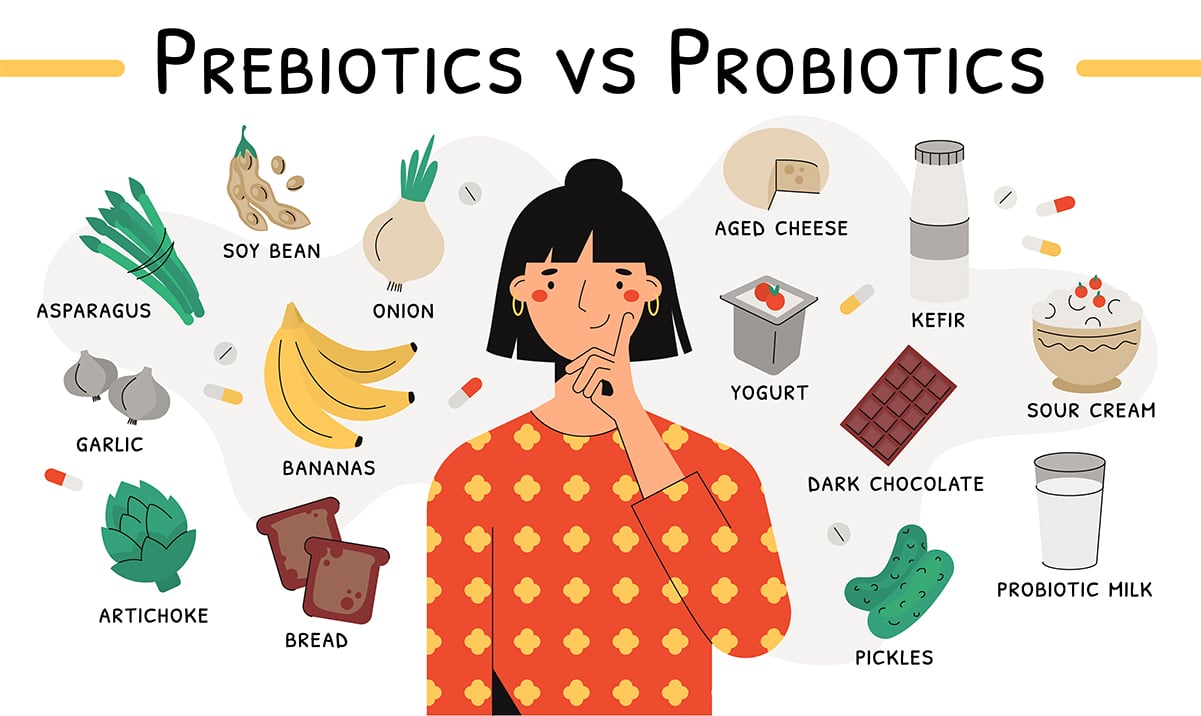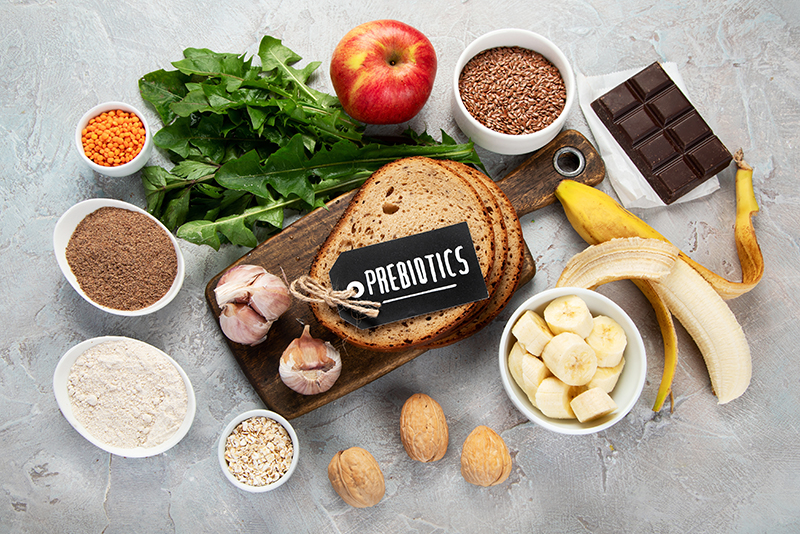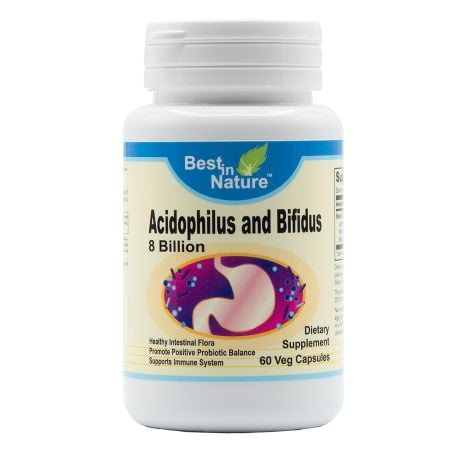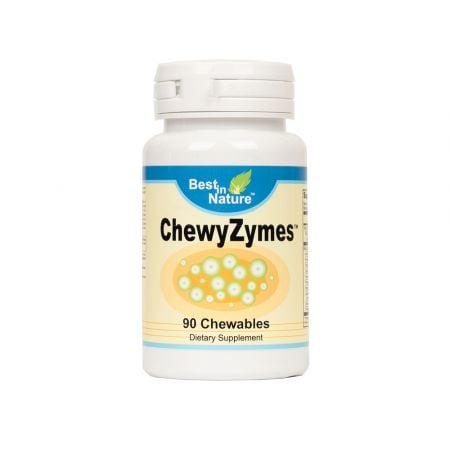
Probiotics and prebiotics sound alike and both are associated with gut health. But they have traits and differences that leave people wondering which one they should take or if there’s even more benefit in combining them. Let’s have a look at what prebiotics and probiotics do and whether it’s worth taking both together.
What are Probiotics

Probiotics are helpful bacteria that live in your body and help to digest the food that you eat. The two main ways that you can get probiotics are from fermented foods like kimchi, yogurt, and sauerkraut or from supplements like Acidophilus and Bifidus.
What are Prebiotics

Prebiotics are non-digestible fiber that feed the probiotic bacterial strains in the gut. These fibers pass through the digestive system without being broken down by enzymes, reaching the colon relatively intact. In the colon, they are instead broken down by probiotic bacteria and helping them to proliferate.
Sources of Probiotics
Sources of probiotics include yogurt, kefir, sauerkraut, kimchi, miso, kombucha, and sourdough.
Sources of Prebiotics
Some prominent sources of prebiotic fiber are oats, barley, bananas, onions, garlic, leeks, certain mushrooms, legumes, nuts and seeds.
Taking Prebiotics and Probiotics Together
Prebiotics and probiotics have a kind of symbiotic relationship wherein each can be beneficial. But taking them together can provide even more benefits. One can think of the gut microbiome as sort of like an ecosystem wherein you’re populating it with probiotics and then feeding them with prebiotic fibers so that the system can thrive.
This can lead to a healthier gut environment opening the way for improved overall health. Remember that every single nutrient you take in needs to pass through the gut to be utilized. The benefits also go far beyond digestion!
Benefits of a Healthy Gut
Energy Levels
This one should be the most obvious. Food (calories) is energy so having a gut that is thriving and efficiently processing your nutrients is key for feeling great. A study that aimed to look at the link between gut health and mental energy, mental fatigue, physical energy, and physical fatigue found that these states are linked to certain bacteria signatures.
Immune Health
UCLA Health says “If you want to boost immunity, look to the gut.” In fact, this is where 70% of your immune system resides. The immune cells in the gut interact directly with our microbiome so the variety and types of foods we eat have a direct impact on our ability to fight off illnesses.
Cognitive Performance
Studies on soldiers and first responders indicate that a healthier gut microbiome has some correlation with better cognitive performance. It’s an area where researchers are calling for more in-depth studies because initial findings seem promising.
Mood Health
Many of the body’s serotonin receptors are located in the gut and the gut’s relationship with a healthy mood is strong enough that a new field has emerged known as nutritional psychiatry. Oppositely, when patients are prescribed antidepressants, the leading side effects are gut-related.
Precautions
Probiotics or fermented foods may have drug interactions so consult your physician about starting a new regimen.
This is especially important for those with autoimmune conditions.
Supplements That May Help
Best in Nature Acidophilus and Bifidus provides 8 Billion Colony Forming Units of 3 prominent probiotic bacterial strains.*
Bottom Line
Probiotics and prebiotics each contribute to the healthy functioning of your gut microbiome. When this system thrives, it’s possible to achieve better cognitive function, immune function, energy levels, mood and of course digestion.






Validate your login
Sign In
Create New Account